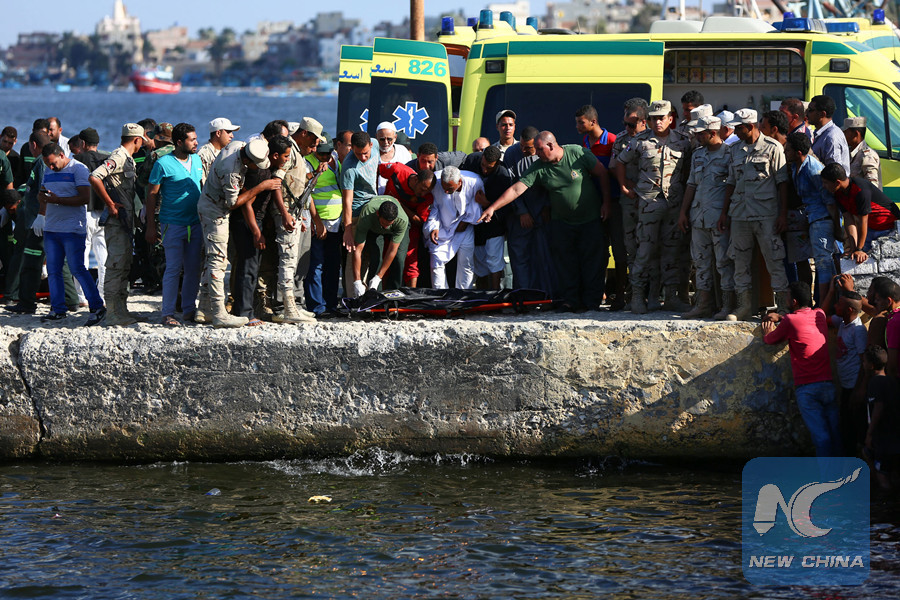
Rescue workers carry the body of a victim from the capsized migrant boat in Rosetta, Egypt on Sept. 22, 2016.(Xinhua Photo)
by Xinhua Writer Wu Zhiqiang
CAIRO, Sept. 24 (Xinhua) -- The death of more than 160 people in the sinking of an overloaded ship off Egypt's Mediterranean city of Rosetta has once again focused world attention on the plight of refugees and migrants.
And on the causes behind tragedies like this.
The refugees, or migrants, however you describe them, were fleeing war and poverty for a safer, better life somewhere else.
A multitude of reasons may be given as to what caused the wars and the poverty, but the West cannot shirk their responsibility.
Colonial rule by Western powers in past centuries and their interventionist policies in recent decades both played a part.
Rosetta, appearing in the datelines of so many news stories on the sinking of the ship with up to 600 people aboard, happens to bear the same name of an ancient rock stele now sitting inside the British Museum and that Egyptian authorities want returned.
Dating back to 196 BC, the Rosetta Stone, which provided the key to deciphering Egyptian hieroglyphs, was once "owned" by Napoleon's troops and then ended up the "property" of Britain.
And now the city of Rosetta is bearing witness to a tragedy partly of Western making.
What a coincidence.
The euphoric atmosphere permeating Washington and other Western capitals at the start of the so-called "Arab Spring" five years ago has long been replaced by hand-wringing in the face of bloodshed, chaos, and misery from Syria to Iraq to Libya, and the terror attacks that filled news headlines so often around the world.
In a few hours, the foreign ministers of the U.S., Britain, France, Germany, Italy, and the European Union are scheduled to gather at Tufts University in Medford, Massachusetts, in northwest United States.
The serene campus of Tufts is a far cry from the turbulent Mediterranean seas, but the wars in the Middle East and the refugee crisis gripping the region and beyond sit near the top of the agenda when U.S. Secretary of State John Kerry meets his five counterparts.
Rosetta and Medford, in the final analysis, are not too far away.
One more death is too many. One day longer of suffering is too long.
It is high time that the United States and other Western countries reflected upon their flawed interventionist policies that often featured imposition of their values and sought regime changes.
It is high time that the West took constructive actions.
They have a moral obligation and historical responsibility to do so.

